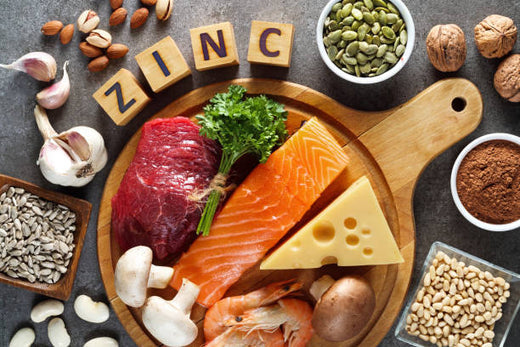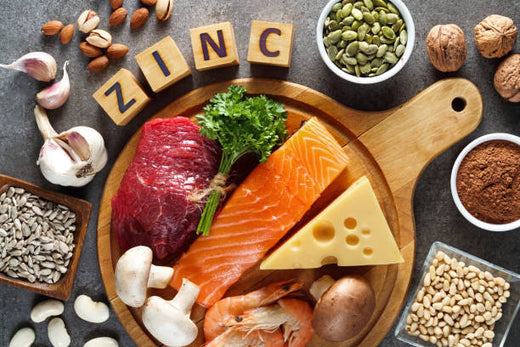
Why Zinc is Essential for Your Health: Understanding Deficiency and Depletion
Zinc: A Vital Nutrient
Zinc is an essential mineral crucial for numerous bodily functions. Since the body cannot produce zinc, it must be obtained through diet. However, ensuring adequate zinc intake can be challenging, and deficiencies are not uncommon. Let’s explore why zinc is so important and how to maintain optimal levels.
Understanding Zinc Deficiency and Depletion
Your body does not store zinc, requiring a daily intake to maintain adequate levels. Several factors can contribute to zinc deficiency or depletion:
- Inadequate Dietary Intake: Vegans and vegetarians are at higher risk of zinc depletion as plant-based sources of zinc are less bioavailable due to the presence of phytic acid, which inhibits mineral absorption.
- Poor Absorption: Conditions such as inflammatory bowel disease, low stomach acid from aging or medications, and other digestive disorders can hinder zinc absorption.
- High Utilization: Factors like stress, pregnancy, breastfeeding, excessive alcohol consumption, strenuous exercise, and chronic use of diuretics can increase the body’s demand for zinc and affect its absorption.
- Mineral Interactions: Zinc competes with iron and calcium for absorption, and excessive zinc intake can inhibit copper absorption.
Symptoms of Zinc Deficiency
Without sufficient zinc, various bodily functions can be impaired. Symptoms of zinc deficiency include:
- Slow growth in children
- Loss of taste, smell, and appetite
- Weight loss and impaired immune function
- Slow wound healing
- Hair loss and skin issues (e.g., acne, psoriasis)
- Diarrhea and low libido
- Impaired fertility and low mood
- Memory and concentration issues
- White spots on fingernails and absence of menstrual periods
Best Sources of Zinc
Animal Sources
Animal-based foods are excellent sources of zinc. Include the following in your diet:
- Oysters and shellfish
- Red meats and poultry
- Eggs, cheese, and fish
- Shrimp and crab
Vegetarian Sources
For those following a plant-based diet, consider these zinc-rich foods:
- Legumes (beans, peas, soybeans, peanuts)
- Whole grains, tofu, and brewer’s yeast
- Nuts (brazil nuts, almonds) and seeds (pumpkin, sunflower)
- Cooked greens, mushrooms, and green beans
Zinc Supplements
If dietary intake is insufficient or absorption is impaired, zinc supplements can help bridge the gap. They are especially beneficial for those at risk of deficiency due to dietary restrictions or health conditions. Incorporate Glowell’s Liposomal Vitamin C + Zinc into your lifestyle to maintain adequate zinc levels and overall health.










